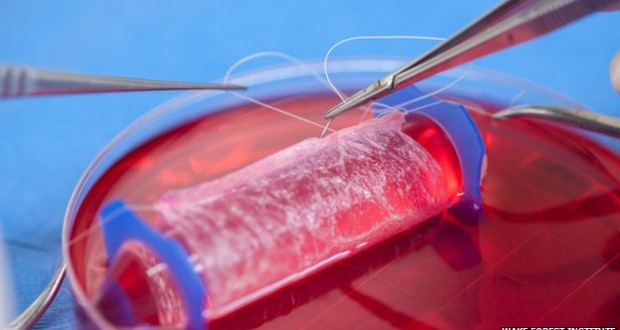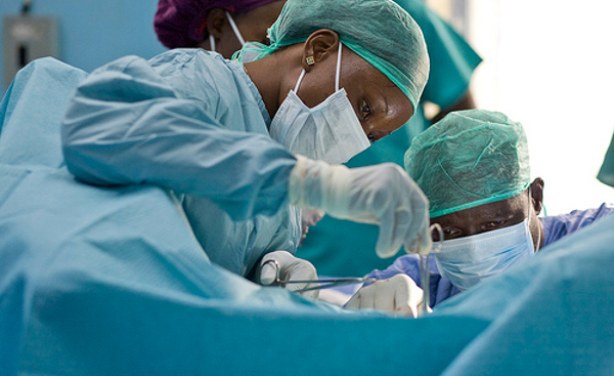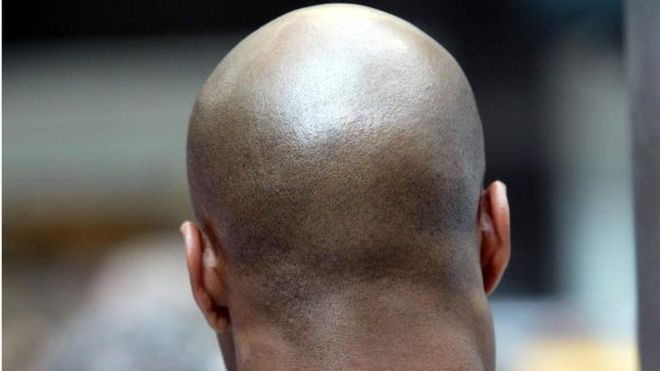PHOTO: Doctors implant lab-grown vagina
- Posted on
- Comment
 Four women have had new vaginas grown in the laboratory and implanted by doctors in the US.
Four women have had new vaginas grown in the laboratory and implanted by doctors in the US.
A tissue sample and a biodegradable scaffold were used to grow vaginas in the right size and shape for each woman as well as being a tissue match.
They all reported normal levels of “desire, arousal, lubrication, orgasm, satisfaction” and painless intercourse.
Experts said the study, published in the Lancet, was the latest example of the power of regenerative medicine.
‘I feel fortunate’
In each woman the vagina did not form properly while they were still inside their mother’s womb, a condition known as vaginal aplasia.
Doctors at Wake Forest Baptist Medical Centre in North Carolina used pioneering technology to build vaginas for the four women who were all in their teenage years at the time.
Scans of the pelvic region were used to design a tube-like 3D-scaffold for each patient.
A small tissue biopsy was taken from the poorly developed vulva and grown to create a large batch of cells in the laboratory.
Muscle cells were attached to the outside of the scaffold and vaginal-lining cells to the inside.
The vaginas were carefully grown in a bioreactor until they were suitable to be surgically implanted into the patients.
One of the women with an implanted vagina, who wished to keep her name anonymous, said: “I believe in the beginning when you find out you feel different.
“I mean while you are living the process, you are seeing the possibilities you have and all the changes you’ll go through.
“Truly I feel very fortunate because I have a normal life, completely normal.”
‘An important thing’
All the women reported normal sexual function.
Vaginal aplasia can lead to other abnormalities in the reproductive organs, but in two of the women the vagina was connected to the uterus.
There have been no pregnancies, but for those women it is theoretically possible.
Dr Anthony Atala, director of the Institute for Regenerative Medicine at Wake Forest, told the BBC News website: “Really for the first time we’ve created a whole organ that was never there to start with, it was a challenge.”
He said a functioning vagina was a “very important thing” for these women’s lives and witnessing the difference it made to them “was very rewarding to see”.
This is the first time the results have been reported. However, the first implants took place eight years ago.
‘Most important questions’
Meanwhile, researchers at the University of Basel in Switzerland have used similar techniques to reconstruct the noses of patients after skin cancer.
It could replace the need to take cartilage from the ribs or ears in order to rebuild the damage caused by cutting the cancer away.
Prof Martin Birchall, who has worked on lab-grown windpipes, commented: “These authors have not only successfully treated several patients with a difficult clinical problem, but addressed some of the most important questions facing translation of tissue engineering technologies.
The steps between first-in-human experiences such as those reported here and their use in routine clinical care remain many, including larger trials with long-term follow-up, the development of clinical grade processing, scale-out, and commercialisation.”
-BBC










 (Selorm) |
(Selorm) |  (Nana Kwesi)
(Nana Kwesi)